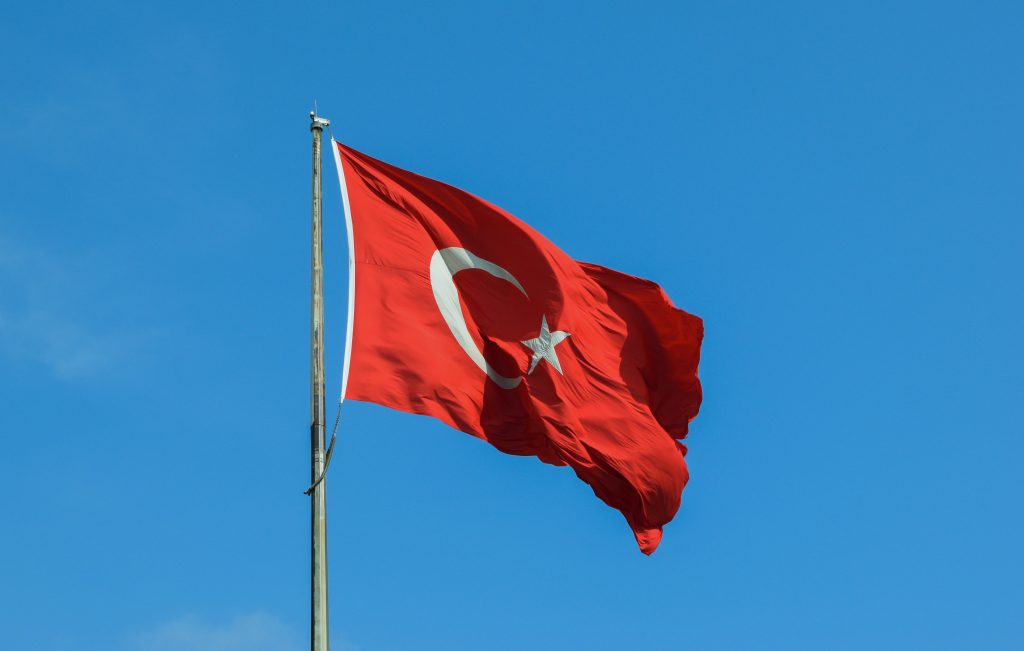- The ongoing diplomatic crisis between the United States and Turkey will have a significant impact on Canadian defence policy.
- While some strategic issues remain contentious, there is currently common ground between the two countries, such as the containment of Iranian and Russian influence and the renewal of the Iranian nuclear agreement.
- Canada could take advantage of the change in the U.S. administration to facilitate discussions between Turkey and the United States. Even a partial resolution of this crisis would be beneficial to the strategic prospects of the Canadian government.
Context
The arrival of Joe Biden in the American presidency raises doubts about the future foreign policy towards Turkey. A few days after Biden’s election, the Turkish president promised democratic and economic reforms in Turkey. However, before the presidential race, Biden had described Erdogan as autocratic and wanted to support the official opposition in Turkey instead. The new Secretary of State, Antony J. Blinken, was more moderate in his remarks. On 19 January 2021, he declared that Turkey remained an ally, even if it did not behave as such. Could this change in the American administration facilitate relations between the United States and Turkey? What are the obstacles and facilitators to easing tensions between the two countries? Why and how can Canada intervene in this matter?
Incompatible a priori Positions Between Turkey and the United States
Since the failed coup d’état in Turkey on 15 July 2016, diplomatic relations between the two countries remain very tense. Ankara accuses Washington of being complicit in this failed coup. This attempted putsch is said to be the work of a Turkish religious movement: the Gülenists. However, the spiritual leader of this movement, Fetthulah Gülen, was exiled in the United States. The American government refuses to comply with the Turkish government’s demands for his expatriation. All individuals affiliated with the Gülen movement are considered terrorists in Turkey.
Turkey’s acquisition of Russian anti-missile systems (S-400) is also a source of conflict. In reaction to this military transaction, the White House cancelled the sale of the F-35 fighter aircraft to Turkey in July 2019 and then sanctioned the Turkish defence sector in December 2020. These anti-missile systems have the capacity to transmit military information to the Russian army. Given the current tensions between Russia and NATO, this purchase is perceived as an agreement with a political opponent of the United States.
Finally, in 2019, the Federal Court of the Southern District of New York accused Turkey of circumventing the economic sanctions imposed on Iran. In 2013, the US Treasury Department had banned money transfers in order to launder the Iranian government’s transactions. The findings of the trial establish links between the Turkish National Bank (Halk bank) and the Iranian government. They found that senior Turkish officials were involved in the scheme. According to John Bolton, Trump’s former strategic adviser, the former US president had interfered to influence the legal proceedings because he had close relations with Erdogan. Under the new US administration, there is no guarantee that this issue will not resurface.
Considering only these three political disagreements, the Turkish and American positions seem irreconcilable. Yet Turkish foreign policy seems to have difficulty in aligning itself with the regional aspirations of Russia and Iran. In order to maintain its spheres of influence in the Middle East and the Caucasus, Turkey must necessarily limit the gains of these two countries by cooperating with the United States.
The Purchase of the S-400s: Proof of a “Russian-Turkish alliance”?
The Turkish army’s acquisition of two S-400 anti-missile systems shows its military proximity to Russia. In the current context, it is understandable that the American leadership remains suspicious of Turkey’s political intentions.
The Turkish government justifies the military transaction by referring to the free choice of self-defence. The S-400s, the latest generation of technology, are capable of detecting air threats and neutralizing them with missiles of varying ranges. These anti-missile systems thus make it possible to modernize Turkish defence. Nevertheless, this self-defence strategy implies the collaboration of Russia, a staunch political adversary of the United States. The Turkish leaders are aware of this. On 8 February 2021, the Turkish Ministry of Defence proposed deactivating the S-400s and reactivating them only in the event of an attack, referring to the S-300 clause in Greece. Although the US Government is intransigent, the Turkish Government seems to want to negotiate a way out of the conflict.
The context is important, as Russian-Turkish relations remain problematic. In all the regional conflicts in which Turkey and Russia are involved, both countries support opposing camps, whether in Syria, Libya or, to a lesser extent, Nagorno-Karabakh. Collaboration therefore seems to follow this logic: “It is better to cooperate with one’s opponent than to become one’s enemy,” because Turkey has been able to obtain gains while limiting those of Russia. Operation Euphrates Shield conducted by the Turkish army in Syria is the culmination of this strategy. Nevertheless, this effort to constrain Russia was based on a fragile balance. In October 2020, Turkey signed a memorandum favouring military cooperation with Ukraine. This decision to once again support a Russian political rival highlights the strategic incompatibility between the two countries. To act as a counterweight to Russia, Turkey must cooperate with the United States. This is probably why the Turkish army was reluctant to activate the Russian anti-missile systems.
The Iranian Nuclear Agreement: the Next American-Turkish Common Ground
The Halk bank scandal exposed other problematic Turkey’s problematic links with Iran. Although the event is critical, it is part of a certain strategic continuity between the two countries since the 2000s. In fact, two regional issues unite Iran and Turkey: curbing the Kurdish autonomist movements and defending the Palestinian cause. However, these common objectives do not guarantee the absence of rivalry.
Ankara and Tehran support opposing Kurdish factions in Iraq. The Turkish government cooperates with Kurdish political parties affiliated with the Kurdistan Regional Government (the Kurdistan Democratic Party and the Kurdish National Council), while the Iranian government instead endorses a Kurdish federal party, the Patriotic Union of Kurdistan. The Palestinian cause also allows both countries to promote their leadership in the Middle East, but both compete for the same role. Finally, Iran and Turkey defend two different sectarian communities in Syria (Alevi for Iran and Sunni for Turkey). Although the talks in Astana have reduced tensions between the two countries, these rivalries persist.
To settle political disputes with Tehran, Ankara still prefers diplomacy. This peaceful approach was opposed to the American policy under Trump, which aimed to weaken the Iranian regime. In addition to the withdrawal from the Iranian nuclear agreement in 2018 and the renewal of sanctions against the country, the American administration supported anti-Iran demonstrations and assassinated the commander of the Iranian Revolutionary Guards in 2020. Most NATO countries, including Turkey, have criticized the “maximum pressure” exerted against Iran. The lack of support from NATO allies and the resilience of the Iranian regime explain the failure of this strategy. Biden proposes instead to renew the agreement on Iran’s nuclear programme. Instead of using mainly force, Washington wants to limit Iranian power again by diplomatic means. In this respect, Ankara and Washington want to curb Iranian influence, without resorting only to hard power. This reciprocity could facilitate the resumption of talks between the two countries.
Considerations and Recommendations for Canada
Although their strategies differ, the United States and Turkey wish to limit Russian and Iranian influence. Both countries also want a resumption of a constructive dialogue on Iran’s nuclear issue. However, some Turkish and American positions are difficult to reconcile, such as the de-installation of the S-400s by the Turkish army or the extradition of Gülen. For these reasons, it is too early to predict normalization of diplomatic relations between the two countries.
The next few months are likely to be critical for US-Turkish relations. There were already sanctions against the Turkish Defence Minister just one month before Biden’s inauguration. In addition to endorsing these sanctions, the new US President remains inflexible on the S-400 issue. These pressures will force Turkey to clarify its intentions. For the time being, the Turkish government is promising democratic reforms and has begun discussions with European countries and the United States, but nothing concrete has yet materialized.
The continuing diplomatic crisis between the United States and Turkey is undermining the optimal functioning of NATO. Since 2019, Turkey has been blocking a defence project in Poland and the Baltic States using its veto power. In exchange, Turkey demands that the Kurdish Workers’ Party (PKK) be recognized as a terrorist entity. The Turkish government’s failure to respect human rights, especially since the failed coup, also tarnishes NATO’s democratic image. With the rise of the BRICS countries, it is important for the collective defence organization to send a clear and unified message.
Cohesion within NATO countries seems to be a priority of the new US administration. Biden’s promises break from Trump’s isolationist approach. For example, the resumption of the Joint Comprehensive Action Plan (JCPOA) is intended to be a multilateral diplomatic effort. This return to multilateralism is more in line with Canadian interests. By drawing inspiration from Germany’s role during the Mediterranean crisis, Canada could try to ease tensions between the United States and Turkey. Canada’s persuasive capacities are more modest, but the Canadian government could take advantage of this period of conflict to facilitate dialogue between the two countries. The United States is in the best position to persuade Turkey to respect the NATO mission.
Any action that could lead to the resumption of discussions or lower tensions would be beneficial to Canadian defence policy. The easing of tensions would send a strong signal of the political unity within NATO that is necessary to negotiate with Russia. A positive resolution of the crisis would also lend credibility to the new US administration for future problematic negotiations such as Iran’s military nuclear issue.





Comments are closed.